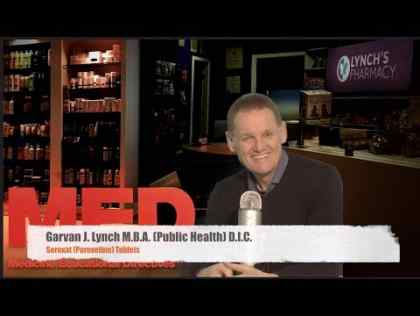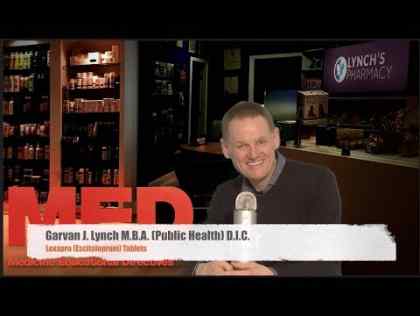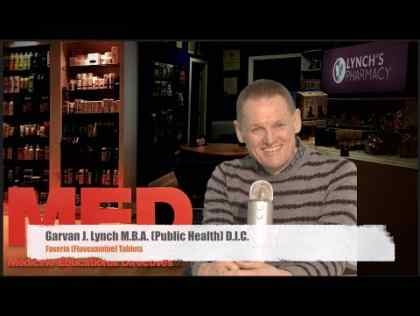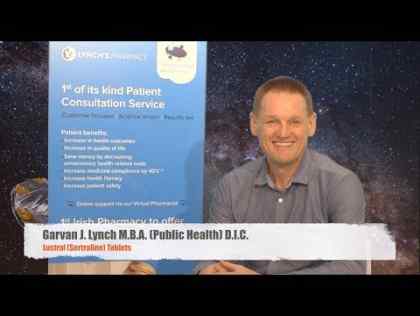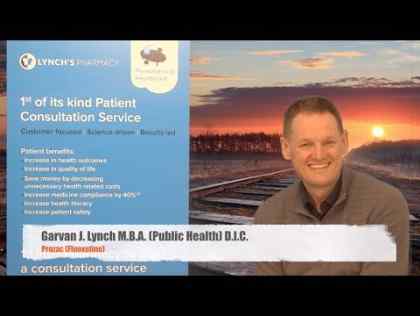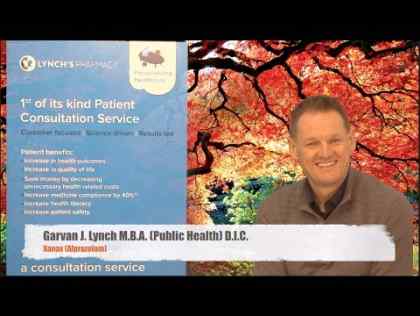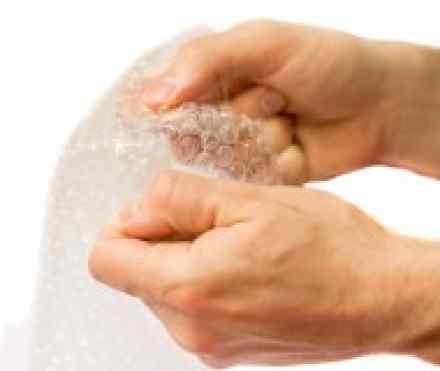
What is it?
Obsessive-compulsive disorder (OCD) is a type of anxiety disorder in which you have unreasonable thoughts and fears (obsessions) that lead you to engage in repetitive behaviors (compulsions). With obsessive-compulsive disorder, you may realize that your obsessions aren't reasonable, and you may try to ignore them or stop them. But that only increases your distress and anxiety. Ultimately, you feel driven to perform compulsive acts in an effort to ease your distress.
Obsessive-compulsive disorder often centers around themes, such as a fear of getting contaminated by germs. To ease your contamination fears, you may compulsively wash your hands until they're sore and chapped. Despite your efforts, the distressing thoughts of obsessive-compulsive disorder keep coming back. This leads to more ritualistic behavior — and a vicious cycle that's characteristic of obsessive-compulsive disorder.
Symptoms
Obsessive-compulsive disorder symptoms include both obsessions and compulsions.
OCD obsession symptoms
OCD obsessions are repeated, persistent and unwanted ideas, thoughts, images or impulses that you have involuntarily and that seem to make no sense. These obsessions typically intrude when you're trying to think of or do other things.
Obsessions often have themes to them, such as:
- Fear of contamination or dirt
- Having things orderly and symmetrical
- Aggressive or horrific impulses
- Sexual images or thoughts
OCD symptoms involving obsessions may include:
- Fear of being contaminated by shaking hands or by touching objects others have touched
- Doubts that you've locked the door or turned off the stove
- Thoughts that you've hurt someone in a traffic accident
- Intense distress when objects aren't orderly or facing the right way
- Images of hurting your child
- Impulses to shout obscenities in inappropriate situations
- Avoidance of situations that can trigger obsessions, such as shaking hands
- Replaying pornographic images in your mind
- Dermatitis because of frequent hand washing
- Skin lesions because of picking at your skin
- Hair loss or bald spots because of hair pulling
OCD compulsion symptoms
OCD compulsions are repetitive behaviors that you feel driven to perform. These repetitive behaviors are meant to prevent or reduce anxiety or distress related to your obsessions. For instance, if you believe you ran over someone in your car, you may return to the apparent scene over and over because you just can't shake your doubts. You may also make up rules or rituals to follow that help control the anxiety you feel when having obsessive thoughts.
As with OCD obsessions, compulsions typically have themes, such as:
- Washing and cleaning
- Counting
- Checking
- Demanding reassurances
- Performing the same action repeatedly
- Orderliness
OCD symptoms involving compulsions may include:
- Hand washing until your skin becomes raw
- Checking doors repeatedly to make sure they're locked
- Checking the stove repeatedly to make sure it's off
- Counting in certain patterns
- Making sure all your canned goods face the same way
Causes
The cause of obsessive-compulsive disorder isn't fully understood. Main theories include:
- Biology. Some evidence shows that OCD may be a result of changes in your body's own natural chemistry or brain functions. Some evidence also shows that OCD may have a genetic component, but specific genes have yet to be identified.
- Environment. Some researchers believe that OCD stems from behavior-related habits that you learned over time.
- Insufficient serotonin. An insufficient level of serotonin, one of your brain's chemical messengers, may contribute to obsessive-compulsive disorder. Some studies that compare images of the brains of people who have obsessive-compulsive disorder with the brains of those who don't show differences in brain activity patterns. In addition, people with obsessive-compulsive disorder who take medications that enhance the action of serotonin often have fewer OCD symptoms.
- Strep throat. Some studies suggest that some children develop OCD after infection with group A beta-hemolytic streptococcal pharyngitis — strep throat. However, these studies are controversial and more evidence is needed before strep throat can be blamed.
Risk factors
Factors that may increase the risk of developing or triggering obsessive-compulsive disorder include:
- Family history. Having parents or other family members with the disorder can increase your risk of developing OCD. However, researchers haven't identified any genes responsible for obsessive-compulsive disorder.
- Stressful life events. If you tend to react strongly to stress, your risk may increase. This reaction may, for some reason, trigger the intrusive thoughts, rituals and emotional distress characteristic of obsessive-compulsive disorder.
- Pregnancy. Some studies show that pregnant women and new mothers are at increased risk, but it's not clear why. In these cases, OCD symptoms center mainly on thoughts of harming the baby.
It was once thought that obsessive-compulsive disorder was a rare condition. But it's now known to be more common than many other mental illnesses. In fact, about 2.2 million Americans have obsessive-compulsive disorder, according to the National Institute of Mental Health.
Obsessive-compulsive disorder often begins during early childhood or adolescence, usually around age 10. In adults, OCD typically begins around age 21.
Complications
Complications that obsessive-compulsive disorder may cause or be associated with include:
- Suicidal thoughts and behavior
- Alcohol or substance abuse
- Other anxiety disorders
- Depression
- Eating disorders
- Contact dermatitis from frequent hand washing
- Inability to attend work or school
- Troubled relationships
- Overall poor quality of life
Diagnosis
If your doctor or mental health provider believes you may have obsessive-compulsive disorder, he or she typically runs a series of medical and psychological tests and exams. These can help pinpoint a diagnosis, rule out other problems that could be causing your symptoms and check for any related complications.
These exams and tests generally include:
- Physical exam. This may include measuring height and weight, checking vital signs, such as heart rate, blood pressure and temperature, listening to your heart and lungs, and examining your abdomen.
- Laboratory tests. These may include a complete blood count (CBC), screening for alcohol and drugs, and a check of your thyroid function.
- Psychological evaluation. A doctor or mental health provider will talk to you about your thoughts, feelings and behavior patterns. He or she will ask about your symptoms, including when they started, how severe they are, how they affect your daily life and whether you've had similar episodes in the past. You'll also discuss any thoughts you may have of suicide, self-harm or harming others. Your doctor may also want to talk to family or friends, if possible.
Diagnostic criteria for obsessive-compulsive disorder
To be diagnosed with obsessive-compulsive disorder, you must meet the criteria spelled out in the Diagnostic and Statistical Manual of Mental Disorders (DSM). This manual is published by the American Psychiatric Association and is used by mental health professionals to diagnose mental illnesses and by insurance companies to reimburse for treatment.
For OCD to be diagnosed, you must first meet these general criteria:
- You must have either obsessions or compulsions.
- You must realize that your obsessions and compulsions are excessive or unreasonable.
- Obsessions and compulsions significantly interfere with your daily routine.
Your obsessions must meet these specific criteria:
- Recurrent and persistent thoughts, impulses or images that are intrusive and cause distress.
- The thoughts aren't simply excessive worries about real problems in your life.
- You try to ignore or suppress these thoughts, images or impulses.
- You know that these thoughts, images and impulses are a product of your own mind.
Compulsions must meet these specific criteria:
- Repetitive behavior that you feel driven to perform, such as hand washing, or repetitive mental acts, such as counting silently.
- These behaviors or mental acts are meant to prevent or reduce distress about unrealistic obsessions.
Diagnostic challenges
It's sometimes difficult to diagnose obsessive-compulsive disorder because symptoms can be similar to those of generalized anxiety disorder, depression, schizophrenia or other mental illnesses. Be sure to stick with it, though, so that you can get appropriate treatment.
References
http://www.helpguide.org/articles/anxiety/obssessive-compulsive-disorder-ocd.htm
http://www.nimh.nih.gov/health/topics/obsessive-compulsive-disorder-ocd/index.shtml
http://www.hse.ie/eng/health/az/O/Obsessive-compulsive-disorder/Treating-obsessive-compulsive-disorder.html
http://www.webmd.com/mental-health/obsessive-compulsive-disorder

